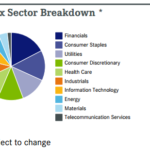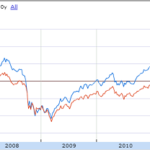If you’re entering into (or even thinking about) an IVA (Individual Voluntary Arrangement), then it’s important to understand how it’s managed and what you can expect from it.
An IVA is a legally binding agreement and a form of insolvency. Once you’ve entered into it then you’ll be bound by its terms and failure to comply could have very serious consequences.
I struggle with repayments. How will they be managed?
Once you enter into an IVA then all your monthly repayments will be repaid to your chosen insolvency practitioner.
Before you enter into the IVA your chosen advisor will discuss what debt types you have, how much is owed and to whom. Thereafter, he or she will be able to give you detailed advice on how you can budget throughout the arrangement and will determine what they consider to be an affordable repayment. Once this repayment has been agreed with you – and accepted by your creditors – then you’ll start to make just one payment each month through your advisor who will then distribute the funds to your creditors (including any percentage in respect of their own fees).
How long does an IVA last for?
An IVA will typically last for five or six years – hence the importance of ensuring you can commit to the monthly repayments for the duration of it.
What happens if my circumstances change during the arrangement?
If your financial circumstances change during the term of the arrangement, then you should notify your advisor as soon as possible. In most cases, your advisor will be able to re-negotiate with your creditors and make certain variations to reflect your circumstances – whatever they might happen to be.
In cases of financial hardship, your advisor might also be able to arrange a payment break – or even an extension to the arrangement. However, it’s important to raise any changes as soon as possible as your advisor will have to liaise with all concerned and as quickly as possible to ensure that the IVA doesn’t fail.
How should I handle my finances throughout the IVA?
Your advisor will be able to give you bespoke advice on how to handle your finances throughout your IVA – and never be afraid to ask questions when it comes to long-term financial commitments. After all, the whole purpose of an IVA business is to put you back into a better financial position for the future – not to make your situation even worse.
If you need help or advice on budgeting then your advisor will be able to assist and help you to prioritise your debts. Of course, these also need to be prioritised in terms of importance. So, for example, your rent or mortgage repayments should be made first with any other ‘unsecured debts’ (such as catalogue debts, clothing etc.) being secondary.
You can also get advice on finance management through certain debt charities or your local Citizens Advice Bureau so never be afraid to reach out for support and help if you feel you need it.











{ 0 comments… add one now }